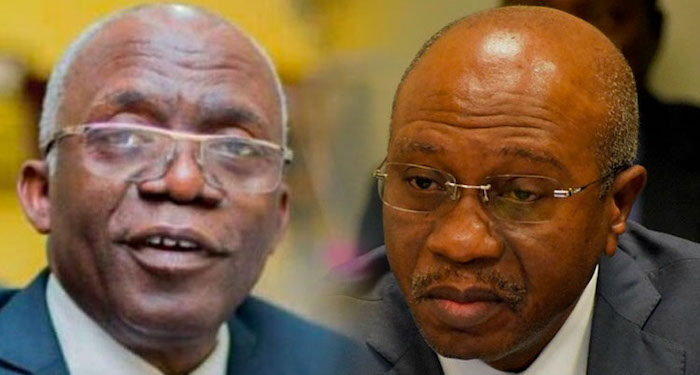Prominent human rights lawyer, Femi Falana, has stated that the Department of State Services (DSS) does not have the authority to investigate and prosecute the suspended Governor of the Central Bank of Nigeria (CBN), Godwin Emefiele, for alleged money laundering. Falana argues that such prosecutorial powers belong to the Economic and Financial Crimes Commission (EFCC), and he advises the DSS to focus only on the allegations related to terrorism in their investigation of Emefiele.
Similarly, Clement Okechukwu Nwankwo, the Executive Director of Policy and Legal Advocacy Centre (PLAC) and Convener of Civil Society Situation Room, expressed his belief that due process was not followed in Emefiele’s removal. He suggests that the CBN Act requires a two-thirds majority of the Senate to support the removal of a CBN governor, and therefore, the proper procedure should have been followed. Nwankwo also raises concerns that Emefiele’s ordeal may be a result of personal vendetta rather than an impartial prosecution by the current administration.
Falana emphasizes that the DSS should focus on investigating Emefiele’s alleged involvement in terrorism financing and subsequently hand over the investigation to the EFCC for the allegations of money laundering and related offenses. He argues that if the DSS continues to investigate the money laundering aspect, which is outside their jurisdiction, they will jeopardize the integrity of the case.
Some analysts also support Emefiele, viewing his situation as a personal vendetta by the Tinubu administration. They question the basis of the terrorism charges against him, considering his previous stance against terrorism and his efforts to counter terrorism financing in the country. These analysts warn that the crude methods used in Emefiele’s investigation could harm foreign investor confidence and portray Nigeria as an unsafe and unserious business destination.
In separate discussions, experts wonder why former President Muhammadu Buhari did not prosecute Emefiele for the same charges now brought against him by the Tinubu government. They argue that Emefiele was simply following instructions from his superiors and should not be singled out for prosecution over policy issues. They acknowledge Emefiele’s efforts in ensuring financial sector stability and commend him for initiatives such as the Anchor Borrowers’ Programme and forex demand management policies.
Overall, there are calls for the DSS to limit its investigation to the terrorism allegations and transfer the money laundering aspects to the EFCC. Critics raise concerns about the lack of due process in Emefiele’s removal and suggest that his ordeal may be politically motivated rather than based on impartial prosecution.


